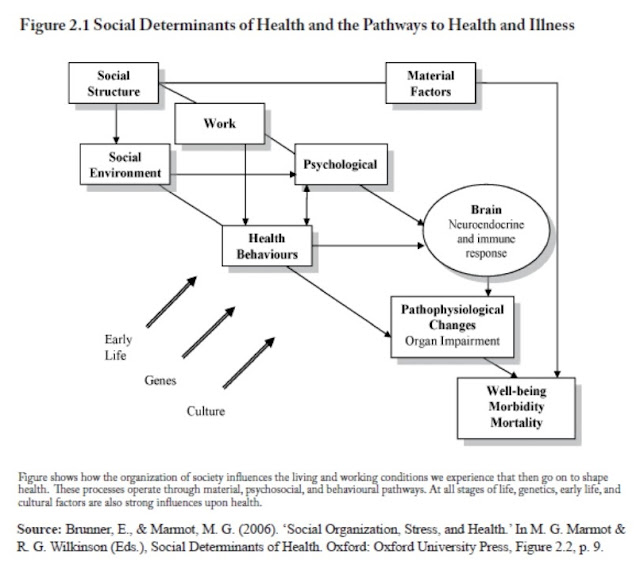"When we just target the individual behaviours,
we're neglecting to look at these systemic factors."
Em
entrevista ao sítio na internet da Upstream: Institute for a Healthy Society,
organização sem fins lucrativos, com sede no Canadá, Denis Raphael Professor de
Health Policy and Management at York University em Toronto, investigador na
área dos determinantes sociais da saúde e editor dos “Canadian Facts” chama à atenção
para importância de uma abordagem sistémica centrada nos determinantes sociais
da saúde, recusando a abordagem centrada nos estilos de vida "When we just
target the individual behaviours, we're neglecting to look at these systemic
factors."
Ao longo da
entrevista o Professor Denis Raphael, fala sobre os determinantes sociais da
saúde, defendendo uma abordagem sistémica uma vez que o enfoque numa abordagem
centrada nos estilos de vida apenas representam, na melhor das hipóteses 10 a
15% da variação dos resultados em saúde.
“What they should be doing is recognizing, as Randolph
Virchow pointed out, that medicine is actually a political activity, and that
certainly, all things considered, you don't want people, if they have some
control, to smoke. We much prefer that people have a balanced diet, and
certainly all things considered, we'd want people to be more active than less
active, but these factors themselves play a rather small role in health
outcomes. The danger to all of this is that what it does is diverts attention
from these far more important issues of living and working conditions. Also, the evidence that these so-called lifestyle
approaches will actually improve the health of the most vulnerable is
completely lacking.
What
actually happens, with all this attention to the so-called lifestyle approach,
all it really does is actually increase health inequalities, because the people
that are in the best condition to actually make these changes in their lives
are already the ones that are going to live longer anyway, and it's an insidious process whereby even when
governmental and other agencies recognize the broader determinants of health,
what they do is in their practical recommendations they drift, such that the
term "lifestyle drift" has come to refer to the tendency of all of
these public health, health agencies and governmental agencies, to rather than
raise the issues of income and democracy and political control and power, they
end up ignoring all of those and telling and implying that the causes of
disease and illness are people's adverse behaviours.”



Sem comentários:
Enviar um comentário